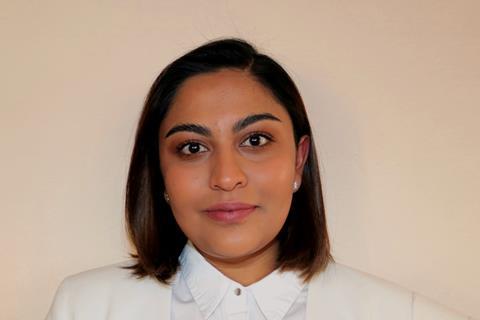Associate, London

Who? Zareenah Rasool, associate, Baker McKenzie, London.
Why is she in the news? The firm’s pro bono team assisted the South African Human Rights Commission in Olympic athlete Caster Semenya’s European Court of Human Rights case concerning testosterone levels in female athletes.
Thoughts on the case: ‘This has been a defining case in the fight against discrimination in sport and will go a long way in helping to promote inclusion and equitable access in all sporting codes. The SAHRC was uniquely placed to provide the ECtHR with submissions on discrimination through the lens of the South African constitution and jurisprudence, so as to highlight the adverse impacts of World Athletics’ Differences of Sex Development Regulations on women from the Global South. The SAHRC demonstrated the discriminatory effect of the regulations on the intersecting grounds of race and gender. In particular, the SAHRC illustrated how the regulations breached Article 14 (prohibition of discrimination) and Article 8 (right to respect for private and family life) of the European Convention on Human Rights. This is the first time that the SAHRC has been involved in human rights litigation in an international forum.’
Dealing with the media: ‘Generally, the media has been supportive of Caster Semenya’s right to compete as a woman and to be safeguarded from being subjected to hormone treatments, particularly as the treatments have substantial side-effects, and as it has not been proven that increased testosterone levels in women with differences in sex development result in any significant advantage for middle-distance runners. The media has also noted that athletes who excel in their respective sporting codes often have unique biological traits, and that biology is not as binary as sports administrators may sometimes view it.’
Why become a lawyer? ‘As a lawyer, you have the opportunity to engage with people and teams collaboratively and contribute to incredibly exciting transactions as well as meaningful causes.’
Career high: ‘Being part of the team representing the SAHRC in this matter is a career highlight. The fight for equality and inclusion is one I hold close to my heart.’
Career low: ‘My career low is linked closely to my personal circumstances – I lost my father when I was a trainee. He was my biggest support, best friend and pillar of strength. It took me a long time to heal so that I could truly be present at work and in my personal life, and contribute meaningfully to my career once again. It has shown me that we only realise how exceptionally resilient we are when we have no other option but to be so.’































No comments yet